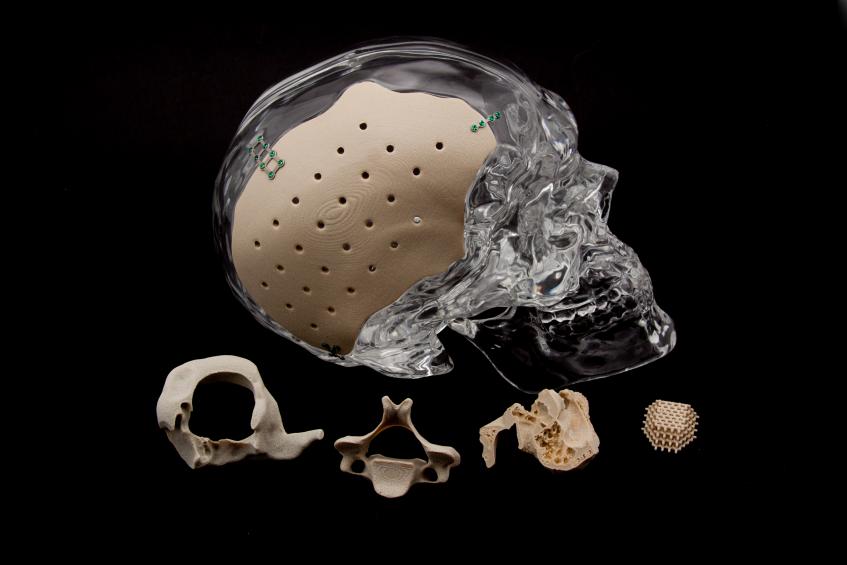
_______________________________________________________________________________________________________________________________________________________________________
Introduction:
3D printing solutions for cranial implants have made significant progress in personalized, on-demand medical treatment.
On April 11, 2025, news broke that Basel University Hospital had successfully performed the first 3D printed maxillofacial implant surgery using PEEK material, compliant with MDR (Medical Device Regulation) standards. The implant was produced on-site at the hospital using the 3D Systems EXT 220 MED extrusion-based 3D printer, showcasing a major milestone in the advancement of personalized medicine.
Instant medical 3D printing technology is gaining traction among hospitals and healthcare institutions because of its ability to significantly reduce turnaround time and streamline the medical supply chain. Currently, this technology is primarily used for visual models for diagnostics and tools for surgical planning.
This maxillofacial implant was designed and manufactured by the team led by Professor Florian Thieringer and Dr. Neha Sharma.
“Our goal is to provide the highest quality of care to patients,” said Prof. Thieringer. “Designing and producing patient-specific implants directly in the hospital enables us to customize treatment precisely to individual needs, respond rapidly, and improve surgical outcomes. The ability to produce implants on-demand marks a new era in personalized care.”
The facial implant was manufactured using VESTAKEEP® i4 3DF PEEK, a high-performance, implant-grade thermoplastic polymer with excellent osteoconductive properties, produced by Evonik. It was printed layer by layer using the EXT 220 MED medical-grade 3D printing platform.
This printer is designed for cleanroom environments and features a temperature-controlled build chamber to ensure biocompatibility and high-quality output in strict medical settings.
Since 3D Systems acquired Kumovis GmbH (the original brand of the Kumovis R1 printer) in March 2023, the EXT 220 MED has officially become part of its medical portfolio. The system has been adopted by numerous leading healthcare institutions worldwide and has already been successfully used in over 80 cranial implant surgeries.
With Basel University Hospital completing its first facial implant procedure using this platform, the project demonstrates the real-world viability of medical-grade 3D printing for on-site production, opening up new possibilities for personalized patient care.